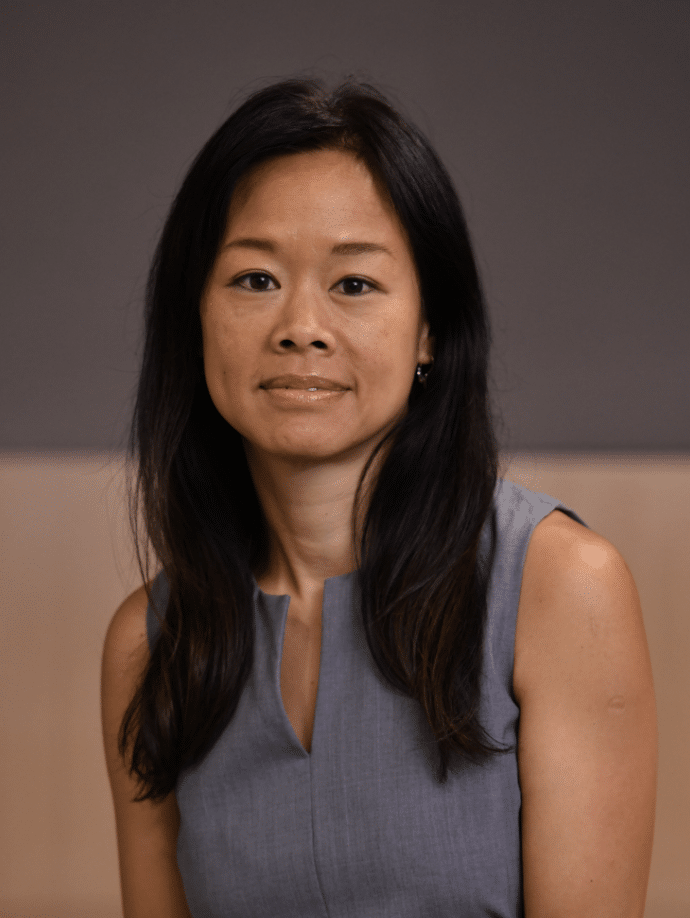
Markets Media spoke with Kathy Ong, Product Management Asia Pacific, Securities Services, BNP Paribas, who won Best in Custody at the 2025 Women in Finance Asia Awards.
Congratulations on the ‘Best in Custody’ award! What does this recognition mean to you both personally and professionally?
Thank you so much! Receiving the Best in Custody award is one of the highlights of my career; it is also very humbling, because I know how many women there are in the industry who are as deserving, if not more.
From a professional perspective, I am really touched to receive this kind of recognition from my peers and clients in the industry, from whom I have learnt so much and continue to learn, as the clearing and custody business evolves at a breakneck pace.
It definitely reinforces my commitment to listening to clients because our product is dynamic and needs to evolve in line with changes in the market, or clients’ needs. Product solutioning cannot be done in a vacuum, and you can only develop meaningful products when you adopt a listening or consultative approach.
Custody services are highly technical and client sensitive. What key strategic initiatives or innovations do you believe helped your team stand out this year?
Custody is not only technical but often follows a long cycle or incubation period. Trying to introduce change in the market, or to convince a client to move its assets can be years in the making. As such, I don’t tend to look at things on an annual basis, but as longer-term initiatives, often with a lot of behind-the-scenes work with the market infrastructure or clients themselves to be able to achieve our objective.
There have been a number of market and infrastructure changes we worked hard to convince the clearing house to make, some of which have taken several years to bring to fruition. In fact, an impending market change this month has been as a result of over a year’s discussion with the clearing house in re-designing the post-trade framework of an important product that the market hopes will materially increase its liquidity going forward.
Can you walk us through a defining moment in your career that shaped your leadership style or outlook on the industry?
I was the Asia Pacific coverage head at another firm, managing relationships with several global institutions during a major crisis a few decades ago. That was by far the most transformational experience for me, both professionally and personally. At that time, I co-led the firm’s crisis management team in Asia and reported directly to the bank’s global and regional management.
While I led the emergency response and managed our risk exposure, the most challenging part was delivering the termination notice to my counterparts (who were also my friends) in the early morning on a Monday which put that company formally into default.
Looking back, this experience contributed immensely to my own personal growth. It helped me gain a level of empathy – the more human aspect of my work that I didn’t recognise before.
Trust and reliability are the foundation of custody services. How do you foster a culture of accountability and precision within your team?
I think ownership and accountability come from modelling that very behaviour yourself. At least that is the theory I subscribe to, while in practice I do not always succeed…that is still a work-in-progress! But overall, I’d like to think that my clients and colleagues understand and respect how I operate, so when I need to have tough conversations, such as saying no to their demands, and standing my ground, they tend to accept it.
How do you ensure your custody services remain client-centric, especially with diverse global client needs and fast-evolving expectations?
Our approach to this is multi-pronged but focuses on three main pillars, which I think clients have come to expect of us.
i. Firstly innovation. This is both in the areas of our product solutions as well as in the way we use technology to serve our purpose. An example of this is how we were the first to introduce in HK the offshore contractual and operational structure that came to be called “2TPC” in the market, which helped to alleviate the amount of regulatory capital brokers required to trade in Hong Kong. Similarly in Australia, we offered a remote trading structure for a large broker that allowed them to launch their activity there in record time without having to build any operational presence on the ground.
ii. Agility and flexibility: through this “listening” approach, a large part of the continued expansion of our leadership position in HK has been because of our flexibility and solutioning according to what clients need. This flexibility actually goes against the grain in the industry, which has a general inclination for standardization.
iii. Market advocacy: we focus on fostering partnerships and open dialogues with key market infrastructures, industry groups and authorities, which enable us to enhance market transparency and efficiency, as well as to introduce best practices into our market.
I cannot overstate how pivotal this stream of work has been for us, as it has helped us to play a material role in formulating best practice in the market and regulatory frameworks across APAC and achieving some critical market changes to support both our clients and the overall business.
There are a few tangible examples and use cases where we have played a key role in advancing the securities services industry in Asia, particularly in terms of improving market transparency, driving new infrastructure development, and bringing positive changes to the market. It is something that I am really proud of.
What advice would you give to young professionals, especially women, aspiring to leadership roles in finance or securities services?
I always encourage people starting out in the industry, in particular to female colleagues, not to be afraid to speak up, even if your opinion isn’t in line with what others are saying. The ability not just to articulate a view but to do so in a way that is respectful yet compelling for others to see your perspective is what will set you apart.
In addition, one of the most important traits of leadership is to be able to listen, to admit one’s mistakes and to genuinely seek feedback. It is definitely not something that comes naturally to many people, me included, but it is an important skill that can be cultivated with practice.
Thirdly, to build resilience in the face of setbacks and criticism. This is probably one of my biggest challenges to overcome, and something that I work on continuously to this day.



